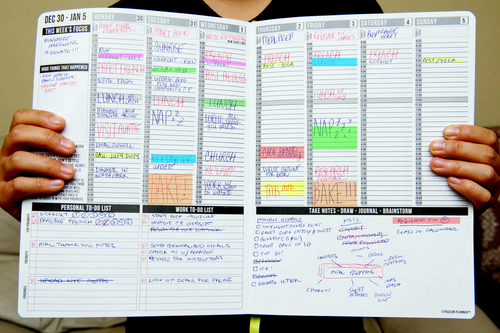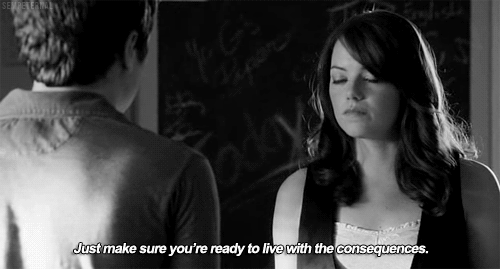Right now Finals Week at FSU is just starting off. It’s a tense time for a lot of people. What could be more stressful than final exams?
The answer: Waiting to see how you did!
For some students, the grade they earn on the Final Exam can make the diffference between passing or not passing a course, or between earning an honor-roll GPA, or not. Either way, that week between taking your exam and finding out your final grade can be full of worry, doubt, and huge, glaring What-if’s.
However, there’s normally not much you can do about it, and it’s hard to plan until you know for sure where you stand. So here’s my advice to you:
Let. It. Go.
(Frozen will never stop being relevant.)
If you’ve followed our tips for Final Exams, then you know you’ve put in the hours, done the work, and tried your hardest. Stressing about the outcomes won’t change a thing. So instead of worrying what comes next, try some of the activities here to let that stress out of your system.
1. Get Outside!

If you’re reading this today, you might look outside and think “Yeah, Right!”, but Spring has Spring in Tallahassee (and all over!). It’s officially the time of outdoor festivals, concerts, and eating on patios. At FSU we’re lucky enough to have the Reservation, where you can spend some time in or on the water, and lots of great outdoor experiences just a short drive from campus! If you’re still in Tallahassee after your finals, maybe take a day to bike down St. Mark’s Trail, or head to the beach for the day, or visit the Tallahassee Museum for some zipline adventures!
If you’ve already headed back home, check around in your area to see what outdoor fun is avaialble to you there.
You’ll not only enjoy a great time, you’ll also enjoy some pretty intense health benefits!
2. Connect With Friends
Whether you’re still on campus, or back home around your old friends, make some time to connect in person. Humans are social animals, and taking time to be around people we care about helps us re-charge and de-stress. Even if you’re an introvert, you can still enjoy the benefits of a rejeuvinating conversation. Just make sure not to overload yourself.
If you’re an extrovert, surrounding yourself with a large group of people at a party or event can help your mood light up! If you’re an introvert, you might prefer a coffee date with just one or two good friends.
3. Make Something!
 You don’t have to be in the FSU Art Therapy program to know that drawing, coloring, or sculpting with play-doh can help boost your mood! On campus you can do paint-a-pot at the Oglesby Union, or just create on your own!
You don’t have to be in the FSU Art Therapy program to know that drawing, coloring, or sculpting with play-doh can help boost your mood! On campus you can do paint-a-pot at the Oglesby Union, or just create on your own!
If visual art isn’t your thing, try writing a story or poem, dancing, or music to get your creative energy out. It will help you feel less stressed and maybe even inspire you to start someting new!
4. Give Back
Taking the time to help others in your community can take your mind off of your own stress, and there are some pretty fun ways to do it here in Tallahassee. For example, the Humane Society uses volunteers to play with puppies to exercise them while they’re waiting to be moved into their new homes. You can also find a list of organizations in the area to work with through the Center for Leadership and Social Change at FSU. If you’re already back home, check out local agencies and non-profits that might need some extra help.
So now you have it! My top 4 tips for staying positive, happy, and sane while you wait for your grades this semester. What are your tips? Share them here or tweet me at @ChemCompSciADV

 I’ve often thought, when I work with students who are building a college schedule, that it feels a lot like a sudoku puzzle! You’re not just looking for the correct answer for this semester, but you also are concerned about how what you put in that box will impact the rest of the puzzle, or in this case, your college career.
I’ve often thought, when I work with students who are building a college schedule, that it feels a lot like a sudoku puzzle! You’re not just looking for the correct answer for this semester, but you also are concerned about how what you put in that box will impact the rest of the puzzle, or in this case, your college career.










 Breakups can go well, or they can be messy. Just like a Taylor Swift song, sometimes a major change can bring on a lot of drama. At FSU we have strict mapping requirements, and if you don’t keep up with your milestones, you might be “rejected” by your major. Or you might not be accepted into a limited access major, like communications or nursing, which can feel a lot like unrequited love! There’s no guarantee that your relationship will go exactly as planned, but rushing into a major before you really get to know it makes it more likely you’ll end up with heartbreak.
Breakups can go well, or they can be messy. Just like a Taylor Swift song, sometimes a major change can bring on a lot of drama. At FSU we have strict mapping requirements, and if you don’t keep up with your milestones, you might be “rejected” by your major. Or you might not be accepted into a limited access major, like communications or nursing, which can feel a lot like unrequited love! There’s no guarantee that your relationship will go exactly as planned, but rushing into a major before you really get to know it makes it more likely you’ll end up with heartbreak.




























